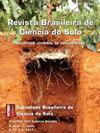解放原则指导下的土壤教育问题案例替代方法论
IF 2
4区 农林科学
Q3 SOIL SCIENCE
引用次数: 1
摘要
土壤教育的目的是给个人一个转变的形成过程,在他们的生活经验和与世界有关的土壤有意识的行动。因此,处理与土壤有关内容的教育方法应与这一教育进程的目的相一致。从社会转型教育的角度来看,建议高等教育教授避免传统的教学行为,并开始使用以学生及其背景为中心的其他策略和方法。为了解决在传统教育范式的学科结构中解放原则在教育过程中的实施问题,实现土壤教育的目标,我们提出了问题案例的替代方法(AMPC),它是由两种具有建构主义原则的方法,即基于问题的学习(PBL)和基于团队的学习(TBL)形成的。该方法分为三个阶段(准备、应用和反思),这些阶段又分为七个步骤,相互补充(恢复社会历史知识和知识;主题研究;问题案件解决;团队指导;个人活动报告;以及个人和集体的反馈)。此外,这些步骤包含个人和团队任务,这些任务围绕着与未来职业相关的问题案例的解决。AMPC不同于PBL和TBL,前者基于解放原则,促进教育过程的发展,重视个人的社会历史知识和知识,并使学生的自主性、创造力、批判性思维和对现实生活中行动的意识得到发展。通过这些挑战,个人可以发展关系思维,复杂思维和批判性思维,将其应用于职业生活情境,面对和重新构建他们的知识和知识,以及通过解决土壤问题案例的实践创造解决方案和规划未来情景,这些挑战都包含在AMPC有效学习土壤的能力中。本文章由计算机程序翻译,如有差异,请以英文原文为准。
Alternative Methodology of Problem Cases - AMPC for soil education guided by emancipatory principles
: Soil Education aims to give individuals a transforming formative process for conscious actions related to the soil in their life experiences in and with the world. As such, the educational methodologies addressing soil-related contents should be in dialogue with the purpose of this educational process. On the perspective of education for social transformation, it is recommended that professors of Higher Education avoid from pedagogical actions with traditional approaches, and start using other strategies and methodologies centered on students and their context. With the challenge of addressing the implementation of emancipatory principles in educational procedures within the disciplinary structure of a traditional paradigm of education and achieving the aim of Soil Education, we put forward the Alternative Methodology of Problem Cases (AMPC), which was shaped up from two methodologies with constructivist principles, P roblem-Based Learning (PBL) and Team-Based Learning (TBL). This methodology is divided into three phases (preparation, application, and reflection), which are in turn divided into seven steps that complement each other (recovery of socio-historical knowing and knowledge; study of the themes; problem case resolution; team guidance; individual activity report; and individual and collective feedback). In addition, the steps contain individual and team assignments, which revolve around the resolution of problem cases related to the future profession. The AMPC is different from PBL and TBL as the former is grounded on emancipatory principles that facilitate the development of educational processes that value the socio-historical knowing and knowledge of individuals and enable the development of students’ autonomy, creativity, critical thinking, and awareness for actions in real life. The challenges through which individuals can develop relational, complex, and critical thinking, apply them to professional life situations, confront and reframe their knowledge and knowing, as well as create solutions and plan future scenarios with the practice of solving problem cases about soils consist in the capacity of AMPC to be efficient to soil learning.
求助全文
通过发布文献求助,成功后即可免费获取论文全文。
去求助
来源期刊

Revista Brasileira De Ciencia Do Solo
农林科学-土壤科学
CiteScore
3.00
自引率
11.80%
发文量
32
审稿时长
9-24 weeks
期刊介绍:
The Revista Brasileira de Ciência do Solo is a scientific journal published by the Brazilian Society for Soil Science (SBCS), founded in 1947, and is responsible for the propagation of original and inedited technical-scientific work of interest for Soil Science.
Contributions must not have been previously published or submit to other periodicals, with the only exception of articles presented in summarized form at professional meetings. Literature reviews are accepted when solicited by the Editorial Board.
 求助内容:
求助内容: 应助结果提醒方式:
应助结果提醒方式:


